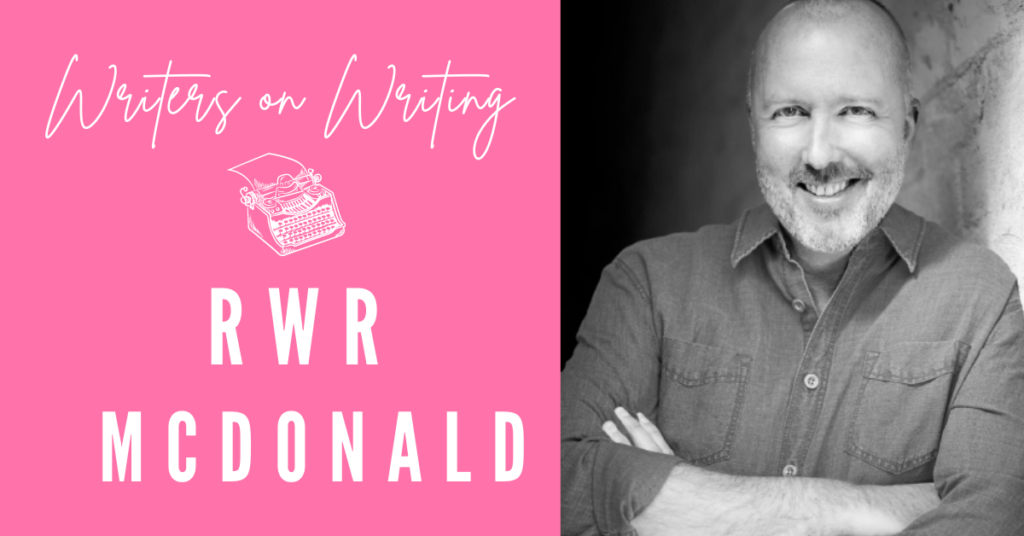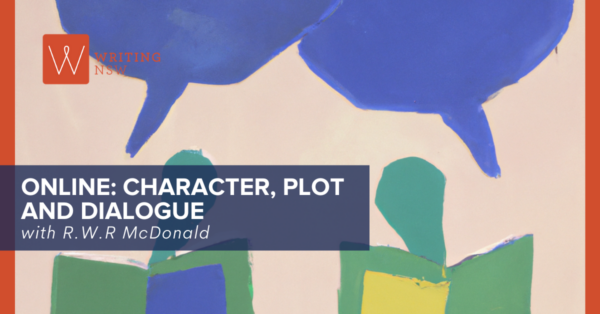
Writers on Writing is our regular conversation with a writer or industry professional about the writing craft, industry insights, and their own practice. We spoke to RWR McDonald about writing crime fiction – and the importance of good dialogue.
Your debut novel, The Nancys, was published in 2019 to much acclaim. What inspired you to become a writer and what drew you to the crime genre?
I have always loved writing, ever since I wrote my first story about what I did in the holidays (which was completely made up) and my teacher gave me a star. It is the one thing in my life where I completely lose track of time. I consume story on a daily basis, from reading to television and film and I cannot imagine life without it.
The crime genre is so interesting I think because it deals with truth, which the more I write and reflect, I feel this is one of the major themes I explore in my work. Crime fiction also provides a strong narrative drive inbuilt as its engine and as a writer you have freedom around that to set your story anywhere, at any time, examine social issues, injustices e.t.c. while providing justice and closure which may not occur in real life. There is also that cat and mouse game you play with your reader, setting clues, misdirects, red herrings – the puzzle aspect – which is a lot of fun to work with and write.
A great many techniques are involved in writing crime fiction, from building suspense and tension to researching facts about the law (and sometime facts about the darkest of deeds). Can you outline how these techniques can be used across other genres of writing?
I have heard from an author, sorry I can’t recall their name, who reckoned readers were wanting more plot driven novels these days due to their exposure to streaming television shows and binge watching, which I thought was interesting.
I think we are competing in terms of entertainment so those techniques of holding a reader’s attention, creating compelling characters, and a strong narrative drive are essential no matter the genre. I also think the reader deserves and expects to feel emotion when reading, whether that is suspense or joy – it just can’t be nothing, or the worst boredom!
We have seen a boom in Australian crime fiction in recent years. Who are the Australian crime authors you’re most excited about?
There are so many, and each year the debut authors are joining, and they seem to be getting better, I haven’t really read much outside of Australian and New Zealand crime fiction for a couple of years now and I’m still only scratching the surface. A couple of books I have read this year, The Silent Listener by Lyn Yeowart, Girl 11, by Amy Suiter Clarke, The Second Son by Loraine Peck, The Good Teacher by Petronella McGovern, The Housemate by Sarah Bailey, The Last Guest by J.P. Pomare. Like I said only scratching the surface! My to be read pile is basically a whole bookcase now, I think I need a time-loop to catch up as there is still so many more excellent Australian crime fiction to come this year for example from the likes of Anna Downes and Chris Hammer.
What’s your process for developing a character for a work of fiction? Are there tropes it’s important to steer clear of?
I like to write myself into the story and get to know characters through their interaction with each other. Dialogue is hugely important for me to discover who they are, their relationship to each other, and that wonderful thing of what is not said, or what they actually think. Once I have a start to a story, I spend a lot of time thinking about who these characters are, their background, what they were doing before we first meet them on the page.
I think it is fun to explore tropes and subvert, particularly when you are playing with genre fiction and readers have an expectation around certain tropes. Of course, any hateful or harmful tropes should be avoided at all costs, by that I mean racist, homophobic, ableist, misogynist, transphobic, islamophobic etc – there’s no excuse for that. Anything that is unquestioned, or unexplored, and demeans is not only harmful it is really lazy. This is separate from a character who may have one of these views but unless that character is being challenged on those views then why do you want to put hate and ignorance out there?
*
RWR McDonald (Rob) is an award-winning author of two novels. His debut novel, The Nancys, won Best First Novel in the 2020 Ngaio Marsh Awards, as well as being a finalist in the Best Novel category. It was also shortlisted for Best First Novel in the 2020 Ned Kelly Awards, and Highly Commended for an Unpublished Manuscript in the 2017 Victorian Premier’s Literary Awards. Nancy Business, his second novel, was a finalist for Best Novel in the 2022 Ngaio Marsh Awards.
Join RWR McDonald for his online course on Character, Plot and Dialogue, 17 April to 26 May. Enrol here >>

If you want to be the first to read great advice, prompts and inspiration from our incredible tutors, subscribe to our weekly e-newsletter Newsbite.
More from Writing NSW
Check out our full range of writing courses in Sydney, our online writing courses and our feedback programs to see how we can help you on your creative writing journey. Find out about our grants and prizes, as well as writing groups across NSW, and sign up to our weekly newsletter for writing events, opportunities and giveaways.
